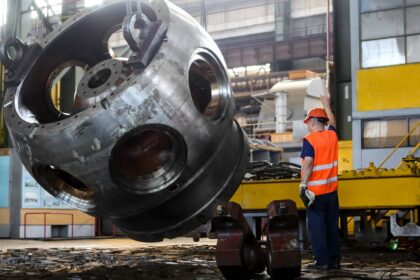The COVID-19 pandemic ripped through the global economy like a whirlwind, leaving a trail of job losses in its wake. Here in Nigeria, millions found themselves unemployed, their skills and experience suddenly deemed irrelevant in a world struggling to adapt to a new normal. As we navigate the path towards economic recovery, a new challenge emerges on the horizon: the AI wave.
According to a recent report by Stocklytics.com, the rapid adoption of Artificial Intelligence (AI) by businesses could hinder the restoration of up to 42% of the jobs lost during the pandemic. This raises a critical question: is the AI revolution a friend or foe for Nigeria’s job market?
AI refers to the development of intelligent machines capable of performing tasks that typically require human intelligence. From automating mundane tasks like data entry to making complex decisions in financial markets, AI is rapidly transforming various industries. While this promises increased efficiency and productivity, it also raises concerns about job displacement, particularly for those whose skillsets are easily replicated by machines.
This isn’t mere speculation. We’re already seeing the effects of AI in various sectors. In customer service, chatbots are replacing human agents, handling routine inquiries and resolving basic issues. In manufacturing, robots are taking over assembly lines, performing tasks with greater speed and precision. Even in traditionally human-dominated fields like healthcare, AI-powered systems are assisting in diagnoses and treatment planning.
While the fear of AI taking over all jobs might be exaggerated, there’s no denying its potential to disrupt the traditional work landscape. The key challenge lies in the widening skills gap between the workforce and the demands of the evolving job market.
Edith Reads, a financial expert at Stocklytics.com, emphasizes this point, stating, “The rapid shift to AI has left some workers struggling to adapt as their traditional skillsets become less relevant in an automated world.” This highlights the need for a proactive approach to equip the workforce with the skills needed to thrive in the age of AI.
However, it’s crucial to remember that AI isn’t just about replacing humans; it’s about creating new opportunities. While certain jobs might become obsolete, new ones will undoubtedly emerge. The key lies in understanding the changing landscape and adapting accordingly.
The AI ecosystem itself will require a diverse range of professionals. Data scientists, AI developers, and cybersecurity experts will be crucial for designing, implementing, and maintaining these intelligent systems. Additionally, human-centric roles like user experience designers and ethicists will be essential in ensuring that AI is developed and deployed responsibly.
Nigeria’s Unique Landscape: Embracing the Future While Preserving the Present
Nigeria, with its young and vibrant population, presents a unique opportunity to embrace the AI revolution. By focusing on education and skills development, we can ensure that our workforce is prepared for the jobs of tomorrow. This includes:
Conclusion: A Balancing Act for a Brighter Future
The AI wave is an undeniable force shaping the future of work, both globally and in Nigeria. While concerns about job displacement are valid, it’s crucial to remember that AI isn’t inherently negative. By focusing on equipping our workforce with the necessary skills and fostering a culture of innovation, we can harness the power of AI to create a brighter future for all Nigerians.
This is not just a technological challenge, but a societal one. We must embrace the opportunities that AI presents while mitigating its potential negative consequences. By striking a balance between automation and human ingenuity, we can ensure that the AI wave becomes a force for progress, not displacement, in Nigeria’s job market.tunesharemore_vert



